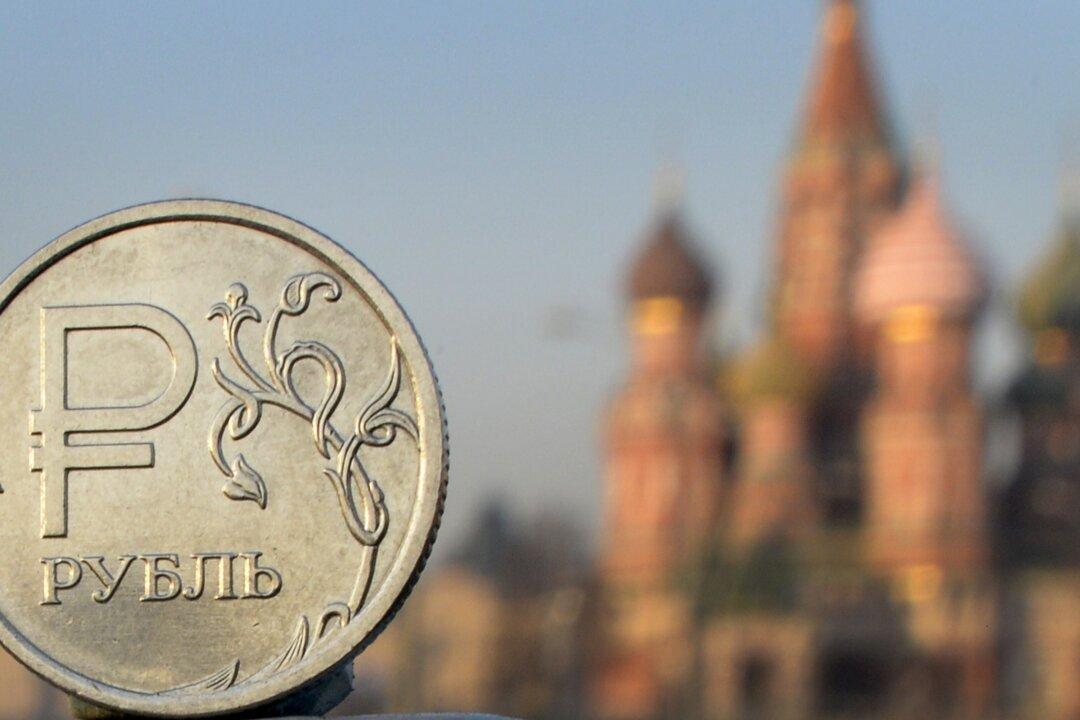Russia’s central bank has more than doubled its key interest rate and taken emergency capital control measures to try stem the collapse of its currency and shore up financial stability as tough Western sanctions over the Kremlin-ordered invasion of Ukraine sent the ruble plummeting.
The Bank of Russia, the country’s central bank, on Feb. 28 announced it had raised the benchmark interest rate from 9.5 percent to a whopping 20 percent to stabilize markets and boost the falling ruble.





